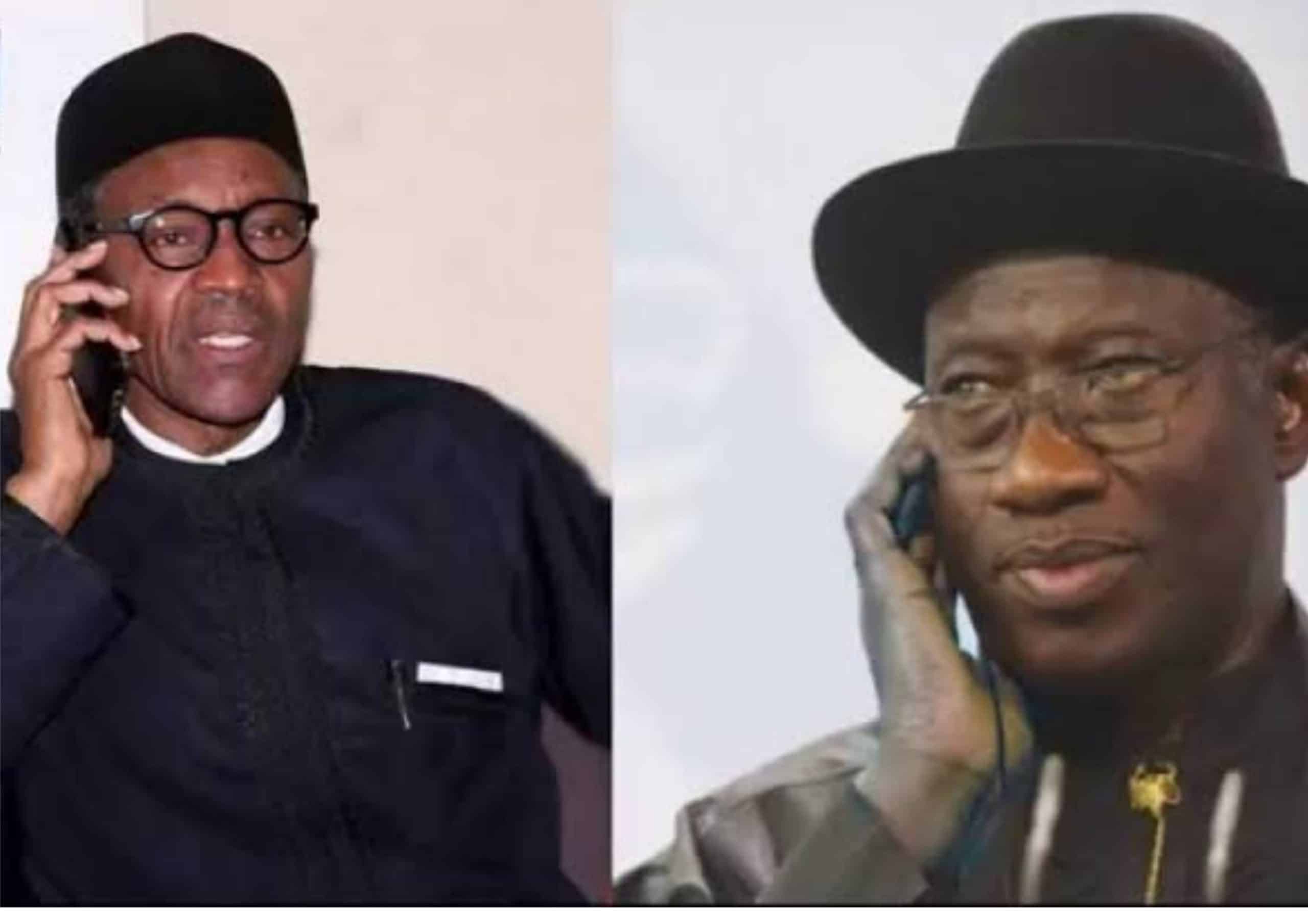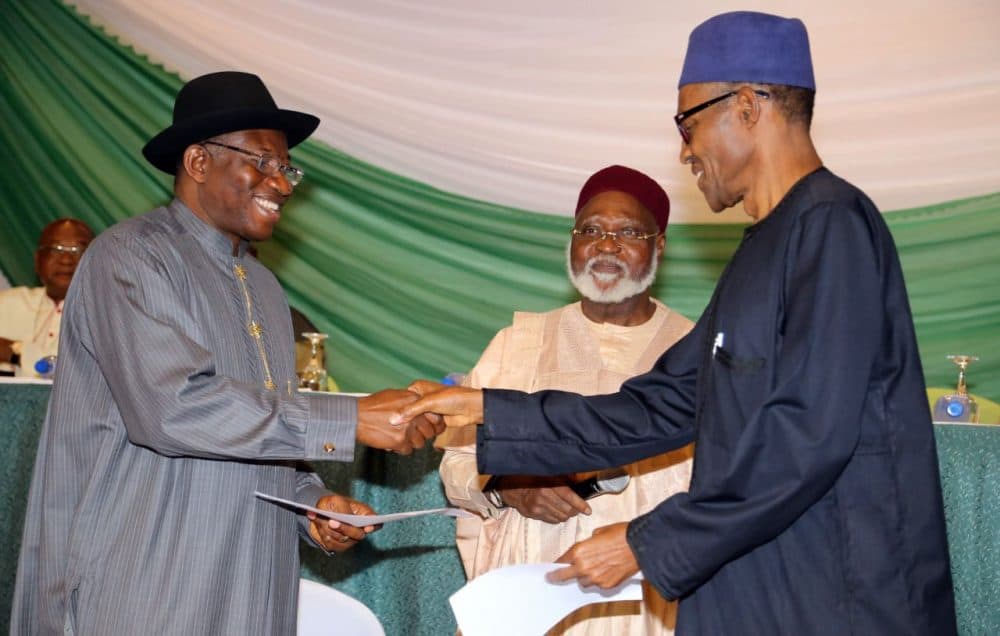The Moment That Changed Nigeria's History: Jonathan's Call To Buhari

A Night That Redefined Nigeria's Democracy: Jonathan's Call to Buhari
On the night of March 31, 2015, the world watched in awe as Nigeria's then-incumbent president, Goodluck Jonathan, did something that few could have imagined. With Muhammadu Buhari leading the race by nearly three million votes, Jonathan picked up the phone and did the unthinkable—he called his rival to concede defeat, even before the official results were announced. This was no ordinary gesture; it was a moment that would go down in history as a turning point for democracy in Nigeria.
In that phone call, Jonathan set a precedent that would resonate far beyond Nigeria's borders. For the first time in the nation's history, power was transferred peacefully from one political party to another. This was a monumental achievement for a country that had long struggled with political instability and the threat of violence following elections. Nigeria, Africa's largest democracy, had just proven that change could come without chaos.
Naija News takes you back to that pivotal moment in Nigeria's history, a time when the nation stood on the brink of transformation. The 2015 general election was more than just a contest between two candidates—it was a test of Nigeria's democratic resilience. With heated campaigns, intense political rhetoric, and widespread anxiety, the stakes were higher than ever before. The world was watching, and Nigeria was ready to show the world what it was made of.
Read also:Celebrity Power How Stars Are Transforming The World Of Crypto Gambling
The political landscape in Nigeria had been dominated by the Peoples Democratic Party (PDP) for sixteen years. But the emergence of the All Progressives Congress (APC) through a strategic merger injected new life into the opposition. Riding on the wave of the "change" movement, the APC presented Muhammadu Buhari as its presidential candidate, pitting him against the incumbent, Goodluck Jonathan. As Nigerians cast their votes on March 28, the tension in the air was palpable. When the results began to roll in, it became clear that Buhari was leading by a decisive margin.
"The Nation Comes First" – Jonathan's Bold Decision
Jonathan's decision to concede was not an easy one. Many in his inner circle urged him to contest the results, citing alleged irregularities and the potential for political instability. But Jonathan, ever the statesman, saw things differently. "Nobody’s ambition is worth the blood of any Nigerian," he declared. "We must conduct ourselves in a way that will not set the country ablaze because of our personal ambitions." With those words, Jonathan made a choice that would define his legacy.
This was more than just a political gesture; it was a demonstration of leadership at its finest. By conceding defeat, Jonathan was sending a powerful message to the world: the nation comes first. This was a lesson that resonated with many Nigerians, who had grown weary of political infighting and the threat of violence. It was a moment that reminded everyone that democracy is not just about winning or losing—it's about the principles that guide us.
Behind the Scenes: The Drama Unfolds at Aso Rock
As the results became clearer, the atmosphere at Aso Rock grew increasingly tense. Jonathan's spokesperson, Reuben Abati, later revealed the drama that unfolded within the presidential villa. "By the time they were announcing Borno state, it was already clear that President Buhari was leading by about 3 million votes," Abati told the BBC. "It was at that point that the drama began in the villa." Security agencies had warned of potential unrest, and Jonathan's advisors were divided. Some urged him to stand firm, while others advised caution. In the end, Jonathan made the call that would change history.
With the weight of the nation on his shoulders, Jonathan placed a call to the control room. "Please get me President Buhari on the line," he said. The call almost didn't go through due to connection issues, but once it did, the moment was sealed. It was a simple gesture, but its significance was anything but. Buhari won with 15,424,921 votes against Jonathan's 12,853,162, marking the end of PDP's 16-year dominance and the beginning of a new era in Nigerian politics.
Jonathan's Reflection: "The Nation Always Comes First"
A month after the election, while addressing new ambassadors, Jonathan reflected on his decision to concede. "As a matter of principle, it is always the nation first," he said. "You need to have a nation before you can have an ambition. It should always be the nation first. You don’t have to scuttle national progress for personal ambition." These words were more than just rhetoric; they were a testament to Jonathan's commitment to the greater good.
Read also:Celebrity Homes And Cars Where The Rich And Famous Live And What They Drive
Jonathan drew on his experiences mediating political crises in other African nations, warning that "if you scuttle a system for personal ambition, it becomes a collective tragedy." This was a lesson that resonated with many Nigerians, who had seen firsthand the consequences of political instability. Jonathan's decision to concede was not just an act of humility; it was an act of leadership that would inspire future generations.
Buhari's Reaction: "I Was Shocked"
Reflecting on the phone call in May 2016, Buhari admitted that he had not expected Jonathan to give up power so easily. "Of course, there was dead silence on my end because I did not expect it. I was shocked," Buhari said. "I did not expect it because after 16 years, the man was a deputy governor, governor, vice-president, and was president for six years. For him to have conceded defeat even before the result was announced by INEC, I think it was quite generous and gracious of him." This candid admission spoke volumes about the significance of that moment and the respect it commanded.
The Historic Phone Call That Changed Nigeria's Future
Below is the brief but historic conversation that symbolized a new chapter for Nigeria's democracy:
Buhari: Hello, Your Excellency
Jonathan: Your Excellency, how are you?
Buhari: I’m all right.
Jonathan: Congratulations.
Buhari: Thank you very much, Your Excellency.
Jonathan: Yeah. So, how are things?
Buhari: Well, I’d congratulate you more because you….
Jonathan: …some of these days to come so that we can sort out how to plan the transitional period.
Buhari: Alright, Your Excellency. Thank you very much.
Jonathan: Okay, congratulations.
Buhari: My respects, Your Excellency. Thank you.
AU Suspends Niger: The Complex Aftermath Of A Military Coup
We Know Who's Behind The #EndBadGovernance Protest - PDP Speaks Out
Anderson Cooper’s Take: Senator Nwaebonyi Takes A Stand Against Former Minister Ezekwesili


